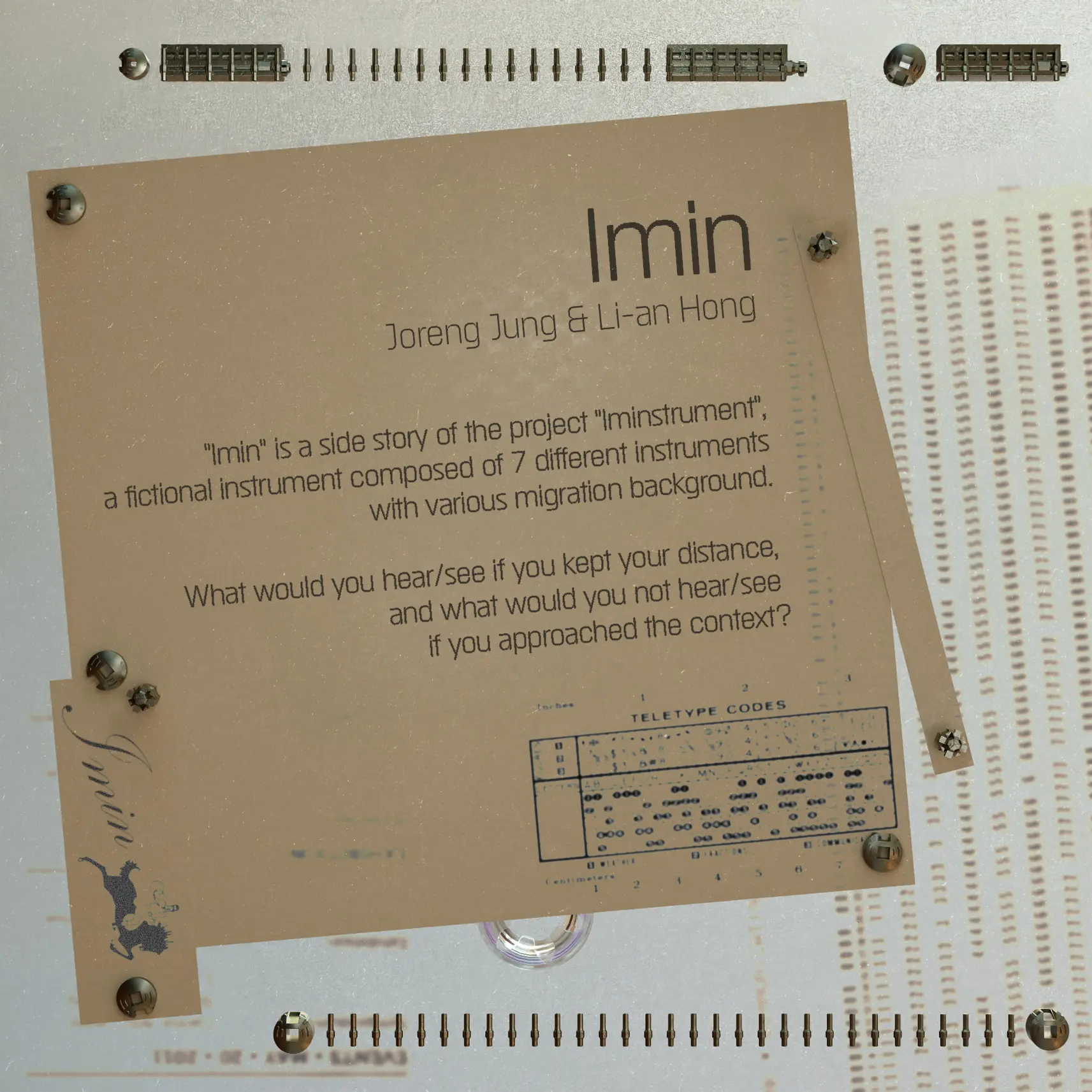Imin
- Date Created3 July 2024, 17:07





A word combining the Korean ‘이민’ (immigration) and ‘악기’ (instrument). It signifies the history of immigration inherent in musical instruments. Even instruments that have evolved to be completely different in playing style, materials, notation, and timbre by modern times share similar roots when traced back to their origins. In the West, the instrument that evolved into the piano is also the cimbalom used in Gypsy music in Eastern Europe. It became the harpsichord and clavichord in Renaissance courts. Adding the idea of pipes, it became the pipe organ. Passing through China and Korea, it lost its keyboard form but retained its identity as a plucked string instrument, becoming the yanggeum.
Written by Joreng Boi

Receiver 01
Agora is empty
Receiver 02
It is "Imin", where nations are two continents of being and non-being, a world that is sought because it is lost and easily lost because it is desired. It is a symptom of the need to use the body as a tool for sex appeal while cursing the nonconforming body, a mythology that soaks holy bodies in spit, blood, and manure, a crossroads where a sense of justice and absolute evil collide. This is a mud pit or a library. The windows are full of trees and grass. All the signs are covered with bushes and broken bicycles are scattered everywhere. Imin was dead before I came here, and in the end, the only death is the death that is forgotten and no one calls it a death.
Receiver 03
Vorname Nachname
Vorname Nachname
Nachname Vorname
Vorname Nachname
Nachname Vorname
Receiver 04
Record expunged, I'm always an oral history.
Aufzeichnung getilgt, ich bin immer eine mündliche Geschichte.
Written by Joreng Boi





